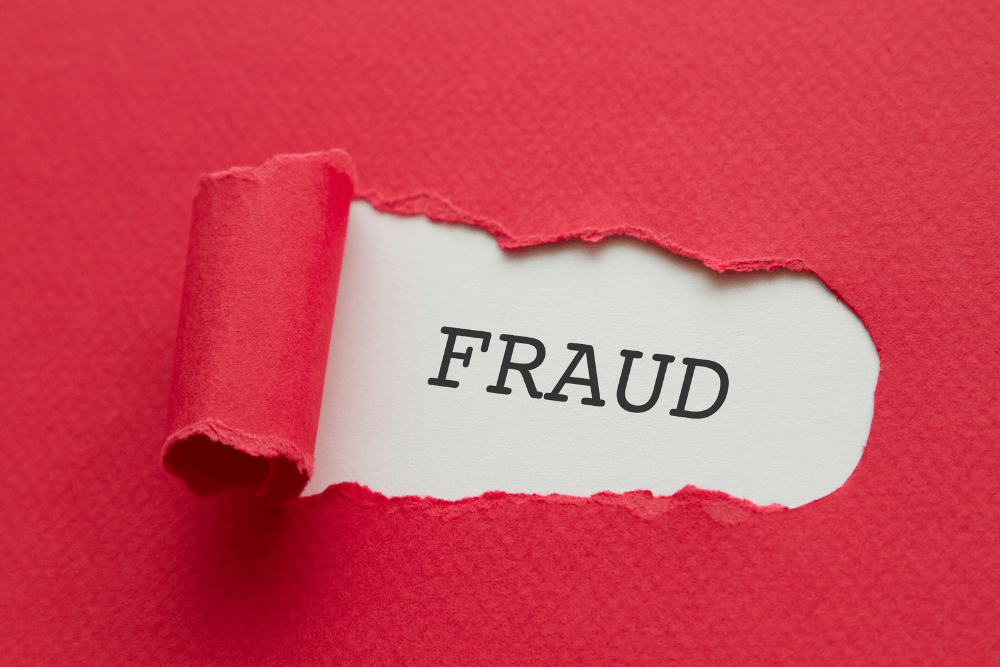If you’ve been charged with the federal crime of wire fraud, contact a wire fraud defense attorney as soon as possible. The consequences of being convicted of this crime involve significant fines and prison sentences.
Hiring a skilled wire fraud defense attorney is your best bet for getting your charges dropped or the penalties reduced. An experienced lawyer can collect evidence that supports your innocence and negotiate on your behalf for a favorable outcome.
What Is Wire Fraud?
To understand wire fraud, you must first break it down into its components. “Fraud” refers to intentionally and criminally deceiving someone for personal gain, often by lying.
Usually, someone committing fraud poses as someone they aren’t, such as a business associate or company representative, to convince targets to comply with their wishes.
Committing fraud is done for a purpose. Often, that purpose is financial gain, but it can involve receiving any benefit derived from the act of deception. Fraud can involve deception to receive money, information, property, or trade secrets.
Fraud becomes wire fraud once telecommunications become involved. Making a phone call, sending an email, or contacting someone through a messaging app like Slack in relation to the act of fraud instantly turns simple fraud into wire fraud.
Common Examples of Wire Fraud
Wire fraud can take many forms. The increasing number of ways to communicate online means that wire fraud can come from various sources. You can be charged with wire fraud even when the individual amounts of money in question are small.
As a simple example of wire fraud, a small business owner might advertise a free giveaway on social media with the condition that customers simply pay the shipping fee.
Advertised effectively, this could lead hundreds or thousands of would-be customers to pay a $10 shipping fee for a free product that never arrives. The business owner successfully pockets hundreds or thousands of dollars without spending a dime.
Wire fraud often takes far more complex forms. Some of the most common forms of wire fraud include:
- Phishing scams
- Mortgage fraud
- Telemarketing fraud
- Advance-fee scams
- Credit card fraud
- Internet fraud
- Investment fraud
- Business email fraud
- Online auction fraud
Ultimately, any scheme that involves some form of deception using the internet, phone, or fax can leave you facing wire fraud charges and significant legal consequences.
Legal Consequences for Wire Fraud
Catching someone who has committed wire fraud can be challenging. In an attempt to send the message that wire fraud isn’t worth the risk, legal consequences for wire fraud have become fairly severe in recent years.
As people and businesses have grown increasingly reliant on internet communications, instances of wire fraud have exploded. As a result, the federal government views wire fraud as a serious threat to online security.
Since wire fraud often happens over the internet, it’s usually considered to be a type of cybercrime. As the internet changes, so do the federal government’s policies toward cybercrimes of all types, including wire fraud.
If you’re convicted of wire fraud, you currently face consequences that include:
- Up to 20 years in prison per charge
- Up to $250,000 in fines per charge
- Little chance of probation
Federal convictions rarely come with the opportunity for early release on probation, which means that a conviction can leave you facing decades behind bars. If you’ve been charged with multiple counts of wire fraud, you can be ordered to serve the sentences consecutively, easily leading to spending the rest of your life behind bars.
When wire fraud involves defrauding a bank, sentencing time and fines will likely be even higher. However, in that case, you probably wouldn’t be charged with wire fraud but instead face bank fraud charges.
When to Call a Wire Fraud Defense Attorney
Wire fraud can land you behind bars for decades, if not the rest of your life. The moment you become aware you are being charged with wire fraud, you should contact an experienced wire fraud defense attorney.
If you committed wire fraud, there’s a good chance you didn’t realize how serious the penalties are. Intention is a crucial component of fraud, so if you didn’t intend to commit wire fraud, failing to contact a lawyer right away can end with you going to prison for a crime you didn’t commit.
How a Lawyer Can Help
Intention is the central element of fraud. If it was not your intention to deceive, you didn’t commit wire fraud. Wire fraud defense attorneys often begin crafting a defense by focusing on intention. If at all possible, an experienced wire fraud defense attorney will work to prove that wire fraud didn’t happen because it wasn’t your intention to deceive.
If existing evidence makes it impossible to disprove the wire fraud charges, a wire fraud attorney will devise a strategy based on the evidence against you. That might entail fighting to have charges reduced to a lesser offense or working to achieve the most lenient sentence possible in your situation.
Whatever circumstances led to your wire fraud charges, one thing is certain: they aren’t going away on their own. The sooner you contact an attorney with experience handling wire fraud defense, the better your chances of avoiding a lengthy prison sentence.
Facing Wire Fraud Charges? Consult a Wire Fraud Attorney Today
Wire fraud charges come with serious penalties. If you’ve been charged with wire fraud, that means there is evidence against you, including some form of evidence showing that committing fraud was your intention.
This is a dangerous situation to be in, and there’s only a limited amount of time in which a wire fraud defense attorney can fight for your future. Contacting a federal criminal lawyer as soon as possible is the best way to take control of the situation and mitigate the long-term legal consequences you’re currently facing.






